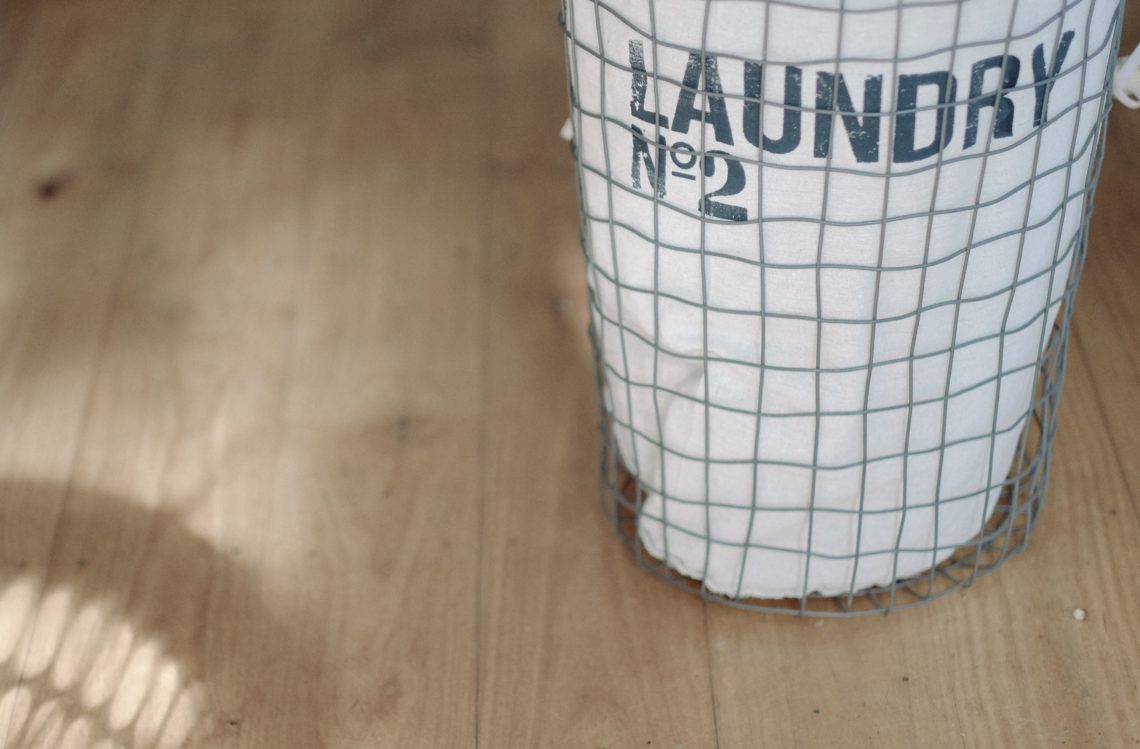
Danny and the Laundry
It was a very stressful time in the kindergarten class at the early education school that I administered. Who knew that a little boy barely five years old could turn the whole place upside down and cause grown women to cry and threaten to quit their jobs? Who knew that an out-of-control child could be controlling the pace and peace of every school day, be the subject of many conferences and strategies, and cause head-scratching and hand-wringing? Could one rather skinny little brown-haired boy really be the source of so much angst and nervous dread-filled stomachs? Absolutely!
When Danny was angry or frustrated, his tantrums disrupted activities and scared the other children, who did not know how or when he would lash out. His loving parents were deeply concerned. Reinforcements were called in, consultants were consulted. Phone calls home, schedule changes, new activities, distractions, classroom consequences and enticing rewards… all were in vain. At the heart of it all was a very confused little boy who needed help. Though filled with compassion, everyone from teachers, to parents, to counselors were running out of ideas, frustrated in our efforts to make a difference. Our strategies were not working and our emotions were strained.
Unexpectedly, a glimmer of hope emerged. It was not an article in a book on challenging behaviors. It was not a technique or an approach learned in a university child guidance class or a teacher workshop. It was not even designed to address Danny’s behaviors in any sort of therapeutic way. It was part serendipity and part inspiration and part accident. It emerged out of a simple need to keep the peace for a little while: to prevent teacher mutiny; to reduce parental anxiety; and to allow a group of kindergarteners to relax and enjoy their day with nothing but the typical tensions of a group of five-year- olds. What was this mind-boggling, innovative strategy? It was folding laundry.
Our school included a couple of hundred children ages 12 weeks through six years, and we generated a lot of laundry. On that October day, I was on laundry duty, one of many tasks that a busy director sometimes adds to her job list. Our floater, the teacher who moves each day from class to class and duty to duty, was absent and it fell to me to monitor the laundry. I was just leaving my office to check on the dryer when the intercom rang with yet another distress call from the kindergarten teachers. I detoured down the south hallway, and didn’t even get all the way to the classroom door when it opened and a teacher gently but firmly handed over a flailing, screaming child. Danny was once again in meltdown mode. In contrast to lots of other times when I pulled out my full array of skills, that day I didn’t say much of anything. I didn’t try to reason with Danny, give advice, consequences or try to find out what had triggered his anger. These things had rarely worked in the past, and in truth, he didn’t really know why he did what he did, nor could he explain it. In the heat of emotions, there was only action and reaction. I just took his hand and said I needed his help. There were sooo many washcloths that had to be folded for the baby rooms, and many more to wash and dry. We headed for the big laundry room back behind the kitchen. With basket in hand, we unloaded the dryer and headed for my office where we dumped the laundry on my conference table and started to fold. Somehow the warm cloths and the ordinary task connected with Danny. We began to fold and straighten and stack, and his little body calmed down. His screams became a memory. He began to talk a little bit about how he was helping the babies, and how he helped at home. As we finished up, I asked him if he was ready to go and play with his friends. He nodded and back down the hallway we went. There was not another SOS from Kindergarten that morning.
Soon, our laundry folding was a daily thing. The teachers began to sense Danny’s rising tensions and would call before emotions erupted. Danny began to ask for his laundry break, recognizing the warning signals within himself. We spent a lot of time folding laundry that fall. We talked about how the babies needed his work. He began to deliver washcloths, towels and burp rags into the classrooms and was always gratefully thanked by the teachers. The staff conspired to make sure there was always laundry that needed folding, even placing clean laundry in the dryer ready for Danny to do his thing. Danny and I were often seen walking down the hall with a full laundry basket. We didn’t worry that Danny was not learning his ABCs or practicing counting to 20. He was learning much more valuable things like self-control, kindness, and how to get along with others. He was learning how helping others can really be helping ourselves.
As the year went on, Danny participated more and more successfully in classroom lessons and routines. His trips to the laundry room got farther and farther apart, until weeks would pass without our laundry “therapy.” I have often wondered what became of little Danny as he made his way through the ensuing school years. I wonder if, instead of time-outs or ultimatums, there were a basket of warm laundry offered to him when his nerves were jangly and the effort of getting along was just too much. I hope that his effervescent, energetic self was nurtured and honored. I imagine how his strong will transformed into wise leadership and perseverance in his chosen work.
Danny’s story is a story of quiet transformation, a testimony to the power of the ordinary to become extraordinary. Folding laundry did not solve every issue, but this simple, soothing task was the beginning of hope and change for Danny and all who loved him. I learned a lot from Danny and the laundry about how healing can hide in everyday tasks. While hands are occupied, peace can enter and the mind can settle. Specialized training and skills are crucial when we struggle to help children find their ways. Yet, simple things can soothe. Routines can calm and settle us. And sometimes change breaks into our everyday lives, bringing hope and solutions.
Prayer: O God, thank you for the lesson of Danny and the laundry. When I am confused and life overwhelms me, may there always be a load of warm, dry laundry somewhere that needs to be folded. May I celebrate and honor the strong power of ordinary tasks to free our souls to soar, our hearts to heal, and Your hope to dwell. Amen.
Reflection Questions:
How have the ordinary tasks of life ministered to you?
What stories could you add about the power of small tasks to spark change?





One Comment
Cherie Rogers
What a beautiful life lesson Danny’s experience offers. Not only did the laundry folding session offer him a chance to refocus on a different and unexpected activity, but he was able to feel like he was doing something necessary and important for the little ones. When we engage in activities that are helpful to others, we have a sense of purpose and meaning in our lives. Now when I fold my laundry I will think of Danny’s lesson.
Thank you for sharing Danny with us.